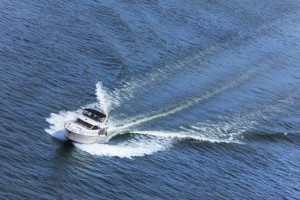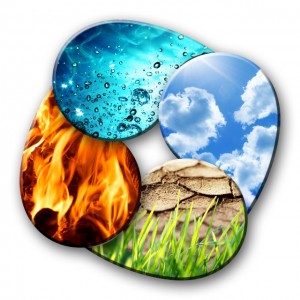 We’ve all heard that happiness comes from within. Someone else can’t make us happy; we have to create our own happiness. We aren’t responsible for another person’s behavior, only for how we behave in response.
We’ve all heard that happiness comes from within. Someone else can’t make us happy; we have to create our own happiness. We aren’t responsible for another person’s behavior, only for how we behave in response.
I agree. Yes, I’m in charge of choosing to be happy, of seeing my glass as half full rather than half empty, of concentrating on the light at the end of the tunnel, of not depending on others for my overall peace and joy, and of opting not to ego-box with people who behave rudely.
Yet the longer I live and the more I observe the daily interactions we have, I’m convinced there is a flip side to the personal happiness coin, and it needs a lot more press. It’s that you aren’t the only one responsible for your happiness. I play a role too because my behavior creates a wake that sends energy outward, just like a boat creates waves on water.
When I was young, I often went out on our boat with my dad when he went fishing. I adored the chill of the early morning air and the sunlight dancing on the surface. I was in awe of my dad’s skill as he took aim, casting the lure between the branches of a long-dead tree partly submerged in the water near shore.
To reach my favorite spot, we first had to cross a big lake. My father made certain my life jacket was on tight, then pushed the boat away from the dock. Once we were clear of it, he put the motor in high gear and we were off, speeding toward our destination.
Holding on tight, I looked backward. I didn’t like facing into the strong wind that our high speed created, but I wanted to watch the effect the boat had on the water as we raced over its surface. Spray shot up over the bow, wetting us. Buoys jerked up and down as we sped by. A flock of ducks quickly took flight, their tranquil morning disturbed by our waves. When we were closer to land, our boat’s wake crashed hard against the shore.
After what seemed an eternity, we arrived. My dad reduced the speed and turned the noisy, smelly, water-churning engine off. He moved up front to an electric trolling motor that silently propelled us the rest of the way, leaving only a small ripple as evidence of our passing.
When we were moving slowly, not upsetting the wildlife, I was delighted by the dragonflies that landed on the boat. Fish swam close by, undisturbed by our presence. Once, a bird came and sat for a brief moment on the steering wheel.
When it came time to head back, I was disappointed. Too soon we were off again, zooming across the lake, our wake disturbing the water and everything on it as we went by.
Many years later, during an especially hard period, it dawned on me: I am like that boat. I too leave a wake as I travel through life. Today I choose to move at a slower, more purposeful pace, although I have not always selected the right speed – in the form of responsible behavior – to represent myself well to the world.
When I wrote a check that bounced, my embarrassment caused me to take my frustration out on the people at the mean old bank. When I had loud parties, I ignored the impact on my neighbors. When I carelessly threw a plastic cup, or bag, or take-out container in the gutter, I wasn’t conscious of the fact that it became part of a swirling mass of trash in the Pacific Ocean.
As a smoker, I rarely considered the negative impact my cigarettes had on others or my pets. I never thought about who was responsible for cleaning up the cigarette butts I threw on the street. Nor did I care about leaving my shopping cart behind a car, or in the middle of the parking lot, rationalizing that someone was paid to put it away. When I was financially irresponsible, I expected family, friends, the government, or strangers to bail me out.
There was a time when I behaved like a fast boat, churning up waves of drama and chaos that crashed hard over myself and others. Looking back, I realize my careless behavior was the result of not thinking about anyone but myself. Finally it dawned on me that I could not possibly be the only person who was impacted by the results of my behavior. That open-hearted, aha moment was what it took for me to stop seeing myself as separate and alone and start seeing myself as part of our Earth family.
The key that opened the door to my heart was when I asked myself, “How will my action feel to that person?” Taking time to put myself in another’s shoes before I act allows me to be aware of how uncomfortable, frustrated, or lonely it feels to be on the receiving end of rude and thoughtless behavior. It does not feel good to be jerked up and down like a buoy. It is not enjoyable to be sprayed with or battered by the wake of another person’s unconscious behavior.
Yes, your overall contentment with life is absolutely your responsibility. The other half of that truth is that no matter how much you take responsibility for creating your own happiness — congratulations, by the way! — what I do does impact your happiness factor.
You are not going to be happy, no matter how much deep breathing you do, if I have a cell phone conversation while your child is onstage, or during a movie, or at the symphony. You can focus all your energy on remaining peaceful, but happiness will elude you if I ignore traffic signs and make an illegal U-turn, causing a traffic jam. Your calm and balance will go out the window if the ripple effect of my thoughtless behavior washes negatively over you.
The flip-side to your happiness factor — the truth — is that although I may live in a free country, I am not entitled to behave as I please. I am not free to do what I want without regard to the consequences of my actions. Action without accountability is not free. There are always consequences.
Our satisfaction and fulfillment in life come from actively creating and nurturing good relationships with everyone, not just our family and friends. I learned that good relationships are impossible if I speed carelessly through life, behaving as if I have a special pass to do whatever I want. Today I realize that when I care about the effect my actions cause, I feel fantastic about myself. I now accept that there is nothing naïve, submissive, or weak about choosing to stop rushing through life not paying attention to my actions. Real courage is slowing down enough to keep my heart open to care about you too. That is the responsibility I have for your happiness.
 In January an Acupuncturist friend of mine led an Introduction to Chinese Medicine workshop for the Teacher Training Program that I direct, the Yoga NH Teacher Training Program. She informed us that the seasons (spring, summer, late summer, fall and winter) are the entry point to the five elements (respectively wood, fire, earth, metal and water) of Chinese Medicine, and each element has unique phases, imbalances and virtues. The five elements are interconnected in a way that has the ability to transform us both individually and as a collective humanity. The five elements also have a connection to the cycle of life: water to wood represents birth and childhood; wood to fire represents teen to early adulthood; fire to earth is the first part of our middle years as related to family, work and community; earth to metal represents the later part of middle age to old age; and metal to water brings us to death – and then the cycle begins again. This life cycle can also be reflected in projects, performances, trips and anything that has a beginning, middle and end.
In January an Acupuncturist friend of mine led an Introduction to Chinese Medicine workshop for the Teacher Training Program that I direct, the Yoga NH Teacher Training Program. She informed us that the seasons (spring, summer, late summer, fall and winter) are the entry point to the five elements (respectively wood, fire, earth, metal and water) of Chinese Medicine, and each element has unique phases, imbalances and virtues. The five elements are interconnected in a way that has the ability to transform us both individually and as a collective humanity. The five elements also have a connection to the cycle of life: water to wood represents birth and childhood; wood to fire represents teen to early adulthood; fire to earth is the first part of our middle years as related to family, work and community; earth to metal represents the later part of middle age to old age; and metal to water brings us to death – and then the cycle begins again. This life cycle can also be reflected in projects, performances, trips and anything that has a beginning, middle and end.
Feedback